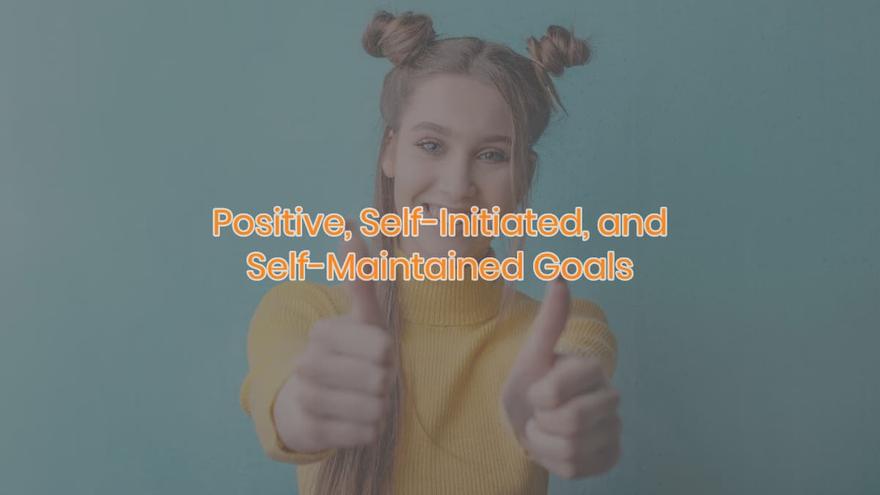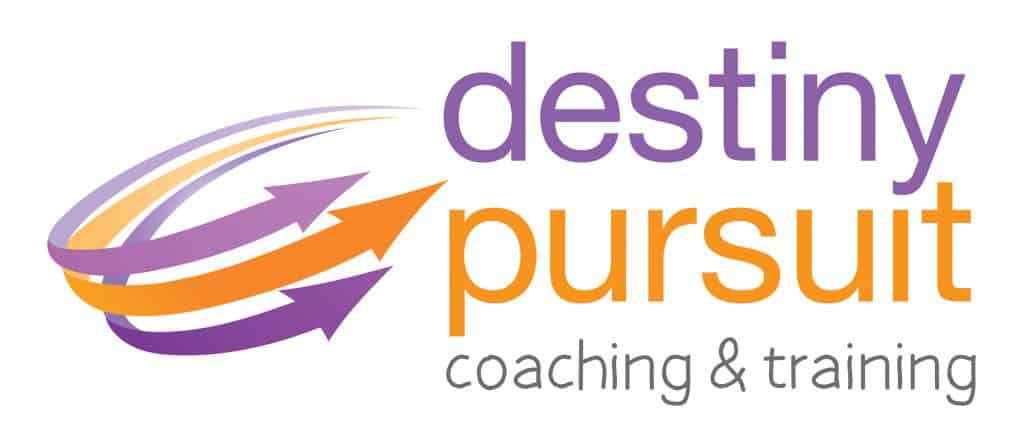Positive, Self-Initiated, and Self-Maintained Goals - NLP Matters, Episode #024

In the previous episode, we introduced the NLP technique called the Well-Formedness Conditions, which adds the final layer to the journey of Building our Successful Life by ensuring our goals are robust and ready to go.
The theme of this first NLP Matters podcast series is to support us in working our way through the process of really building the life we want to have, our own version of a successful life. As we work through this process layer by layer, we gain even more clarity on what it is we actually do want to have!
When we have used the first of the 5 Success Principles - Knowing our Outcome, as well as the Keys to an Achievable Outcome, we get an even greater understanding on what needs to be done – the targeted actions, to achieve the outcome, and who we need to be to deliver on these actions to get the results. The next step is making sure that we believe both consciously and unconsciously that our desired outcome is totally achievable because we do not want to invest all this effort and time only to set ourselves up to fail, do we?
This is where the Well Formedness Conditions adds so much more value. When we use it together with the Five Success Principles and Keys to an Achievable Outcome, this final check confirms that all the work we have already done planning and preparing for our success is not only possible, but even more than that it is also totally do-able.
In this episode, we take a deeper dive into the first two of these conditions – stating our goal in the positive, and having the goal self-initiated and self-maintained.
Listen to the podcast to learn more.
Listen to the Podcast
Here are some key takeaways from this episode:
- The more congruent our belief that consciously and unconsciously - we can do it!, the easier it is for us to successfully achieve a quest.
- Our unconscious mind functions in a totally different way than our conscious mind. Our unconscious mind thinks in symbols/pictures rather than words. It is not logical. It is the domain of emotions and it has the very important job of keeping us safe. The only challenge with this is that sometimes keeping us safe can mean not letting anything change, which can be a problem if we have a goal or outcome we want that requires us to make changes.
- The Well-Formedness Conditions are well designed to get our unconscious mind on board with our desired outcomes.
Stating the Goal in the Positive
- Stating the goal in positive terms is critical to the success of our goal because the alternative approach puts our focus on what we don’t want rather than what we do want. Remember, because our unconscious mind is in charge of our attention, we want to draw its attention to what we do want to have instead of what we don’t want. In this way, we can convince our unconscious mind that even though our goal might involve some change, it is a desired change.
- When stating or writing a goal, it is important to eliminate negative words from your goal. Eliminating these words, gives your unconscious mind clear instructions on what you do want because then you really do bring all your resources into alignment, both conscious and unconscious to support you in the pursuit of your goals.
- You also don’t want to state or write your goals in comparison to where you are now. When you actually reference the present into your goal, it means you are focused on what you have now, and every time you move away from that because your focus is on how you were when you started, that is what draws our attention. The risk is that this constant focus will draw you right back to where you were because, again, we will get what we focus on.
Self-Initiated and Self-Maintained Goals
- Ensuring that the goal is self-initiated and maintained is extremely important, because if the goal isn’t OUR goal - if we are doing it for someone else or if it is a test to prove our worthiness, our unconscious mind won’t get on board.
- Our unconscious mind is there to protect our identity and to help us get what we want. It is not there to prove anything or to get approval from others. So, if the outcome isn’t truly yours, and you are not fired up by what you will get when you have it, then you simply won’t be motivated to achieve the outcome.
- A goal that is self-initiated is something that you can commence. It doesn’t rely on someone else to begin for you. It is also important that you are committed to the goal, it is not something you are doing “for someone else.”
- A self-maintained goal means that the achievement of the outcome is in the sphere of your own control. It is not something that you are reliant on someone else for.
As we plan our goals using each of the NLP tools we have talked about through this series, we gain deeper and deeper insight into how being aware of the objections and issues that could derail us as we pursue success. We create the potential for us to deal with issues, and when we ultimately commit to our goals, we have built such great internal resilience. We have learnt how to problem solve obstacles. We have truly committed to being who we need to be, doing what we need to do so that we get to have what we set out to achieve.
Applying the Well-Formedness conditions to build that resilience into our goal means that we can be certain that our goal is robust and so “sticky” that we really can become unstoppable.
In our next episode, we'll go into depth with the third of the Well-Formedness Conditions, expressing our goal using specific sensory-based descriptions. These techniques continue the work we have done so far on how to build a truly successful life – as we follow through with our final check on the structure and formation of our goals.
Listen to the Podcast
Joanne Clark
Joanne Clark is an Internationally accredited Master Trainer of NLP who has been delivering NLP training since 2011. Being on her feet in front of training rooms is where Jo loves to be and her passion for inclusive and immersive training that delivers outstanding learning outcomes is apparent to everyone in her training rooms. On average Jo delivers 140 days of training per year in addition to online webinars, guest speaker events and group coaching.
“NLP is at the core of all my training and coaching, it is at the core of who I am, how I interact and connect with people. I am absolutely passionate about spreading the NLP tools across the planet as I endeavour to support Robert Dilts’s vision of Creating a world to which people want to belong.” Joanne Clark
Certified Master Trainer of NLP; Master Practitioner NLP, Hypnotherapy & Matrix Therapies; Performance Coach; Cert IV Coaching; Advanced Practitioner in Coaching; Cert IV in Business; BA(Hons); Majors in Sociology and Psychology; Parent Education Leadership Training (PELT) Certificate; Mother of four children; Private Pilot (PPL); Diploma in Life Coaching


0 comments
Leave a comment
Please log in or register to post a comment